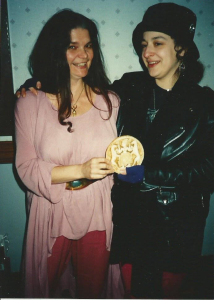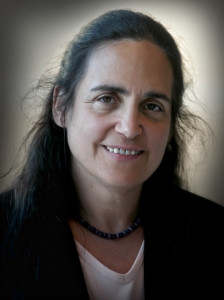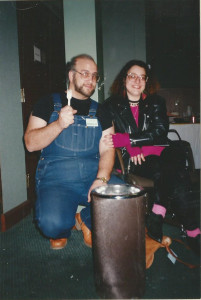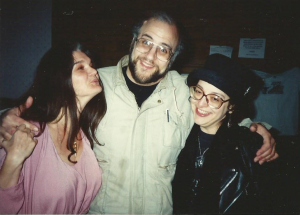I had a fab talk on December 14 with Eron Mazza of The Witching Hour. We had a hilariously near-endless stream of technical mishaps, but eventually we did figure out how to pod, and the talk is wide-ranging, including (but not limited to) my forthcoming book, Bending the Binary. Give it a listen!
Archive for Paganism
Book Review: Have You Been Hexed?
Quite by accident, I stumbled upon an excellent book, so I’m breaking blog silence to review it. More about jonas-andersson
Have You Been Hexed? Recognizing and Breaking Curses, by Alexandra Chauran is absolutely superb. In truth, I was wondering if I should write a book on the subject, so my editor suggested I read this one first. It’s probably better than what I would have written.
Most people approach hexes/curses in one of two ways: Either, there’s no such thing (or, as a variation, there’s no such thing unless your imagination is allowing it), or HOLY SHIT IT’S EVERYWHERE. Chauron, by contrast, is neither alarmist nor dismissive.
The author covers just about everything you’d hope such a book would cover, such as:
- You’re probably not under a hex, but you might be
- Here’s how to tell
- What else might be wrong if it’s not a hex
- And what to do about that
- Cultural factors in hexes/curses
- How to detect a charlatan who is selling “hex removal”
- And what to do about that.
It’s all written in a clear, educational, lucid, and very sane style. The author clearly understands Wicca, magic, and related subjects, but asks no such background of the reader. She’s experienced both with people who think they are cursed but are not, and the real—if rare—thing. It’s a short book that can function as a how-to guide to a fraught situation.
Do I agree with 100% of the book? Of course not—no two people agree on everything. My only real complaint is that she references and uses Isaac Bonewits’ “Laws of Magic” often, but does not include him in her bibliography. This is an editing error, though, not a writing error, and doesn’t detract from the book.
Thoughts on Fluffy Bunnies
Today on Facebook, someone said something insightful.
I know! Let that just sink in.
Anyway, Jason Thomas Pitzl said “Number of ‘fluffy bunnies’ converted by rants: statistically 0?. And that opened a long thread about fluffy bunnies and what they are and why people rail against them and so on.
First of all, what is a fluffy bunny? Isaac used to define it as “Nature pink in gum and paw“. It’s a perception of Wicca as being all sweetness and light, about getting your ideas of Nature religion from the frolicking centaurs and fairies in Fantasia.
So what?
Look, there’s a certain sense that perhaps a “fluffy bunny” Wiccan or Pagan is entirely unserious and really doesn’t know what he or she is doing. Maybe that’s true. Well, no harm done, and as Isaac liked to say, there’s at least as much damage done by those excessively dark and gloomy in their Paganism as by those excessively light and sweet.
But here’s the thing. Scott Cunningham, as he was dying, was still talking about the Goddess as being about beauty and gentleness. He was one of the best researchers I ever knew; his knowledge was encyclopedic. He didn’t have a sweet and light attitude about Wicca out of ignorance, either of ancient Paganism or of how dark life could get. Knowing an enormous amount about Paganism, and on his deathbed, he still believed in the lightness. You want to call him a fluffy bunny? Go ahead. Because who he was, was a person who looked to the light.
If a person is “fluffy” because they don’t know much, that person can certainly learn, although being mocked doesn’t help the process. If, on the other hand, a person is genuinely, by nature, oriented towards that sweetness, even a sweetness that makes other people’s teeth hurt? Well, let them follow their nature. I’m pretty sure that’s part of what this whole Pagan movement is all about.
Thoughts on Polarity, Gender, and Tradition
I had this long talk about polarity with the spouse last night. One thing that rarely gets discussed is that polarity does not exist on its own.
Look at yin and yang. Typically, you see the symbol as black and white. But if it’s black and gray, then gray=Yang. If it’s white and gray, then gray=Yin. And if it’s gray and gray, then whichever shade of gray is darker=Yin. It is therefore almost impossible to understand whether something is Yin or Yang unless you see the full circle; both sides of the polarity.
As we understand this, we understand that working polarity magic requires two ends of the pole, and it requires both separation of, and bringing together, the poles.
So after our conversation, the spouse went off and graded papers or whatever the fuck she does when she’s in her cave, I started thinking. Maybe the reason gender is so incredibly important in Gardnerian symbolism and practice is because it’s one of the few stand-alone polarities. Most of us know, all the time, which gender we are.
So, I know my femaleness all the time, whether or not there’s some maleness around to energize or activate that pole. Most of us do. Sexual orientation doesn’t impact that, although people used to think it did. Being transgender doesn’t necessarily impact that either: Many transgender people are as 100% solid in their internal understanding of their own gender as most cisgender people are.
Some people (including a lot of trans* people) are genderqueer, meaning they live with gender ambiguity of some kind. Maybe they feel differently about gender expression at different times, or maybe they live with and embrace body/mind difference (male-bodied, female spirit, or vice versa).
But most of us know gender all the time, and our culture is very invested in knowing gender all the time, and so it becomes really, really important in ritual, because it shows us the poles. All the time.
Some other things are polar all the time. A cup, for example. There doesn’t have to be anything in the cup to understand it as a receptacle (Yin). Similarly, an athame is pretty much inherently Yang, although if you eat your peas off the edge, you’re using it as Yin. The Gardnerian tradition emphasizes and needs things that are inherently polar.
One of the things people ask is, does the Gardnerian tradition exclude people who are trans* or genderqueer. Like almost everything anyone asks about “the Gardnerian tradition,” the answer is, depends on the individual coven. But mostly, absolutely not. To the extent that a person has an inherent understanding of their own polarity, that person can work a polarity system. I think the system works best when there is internal knowing of polarity, but remember, polarity actually functions only when there’s an opposite pole. So the system works with a queer person expressing polarity in relation to others; being Yang by working with a Yin partner, for example. After all, the energy doesn’t happen without the partner anyway, so why not?
When you work polarity solitary, you can complete the circuit internally (finding the opposite “dot” on your usual side of the yin/yang symbol), or you can use external tools (athame, cup) to work polarity (or both). You can also complete the circuit with the Gods: Female energy to God, male energy to Goddess, queer energy to queer deity, however you like, wherever you find the circuit.
The tradition will persist in needing the inherently polar wherever it is found; in bodies, in gender-spirit, in tools, in ritual formalities. But the tradition doesn’t need to get stuck in an older and outmoded understanding of gender. Most covens have grown the fuck up.
Blessed Samhain
Today I honor my beloved dead.
Since last Samhain, many whom I have loved have crossed over. It has been a difficult year. Today, I will try not to grieve, and instead, simply to honor and to love. I don’t know if I will succeed.

Donald Michael Kraig: March 28, 1951 – March 17, 2014
His influence on the magical community should not be underestimated. Modern Magick is a classic; the book to read on Ceremonial Magic if you read only one, and the book to start on if you’re cutting your teeth. Don was the first author to insist on tearing down what was then a wall between Paganism and CM. He taught simply and straightforwardly, cutting through bullshit with ease.
I miss him.
Morning Glory Zell-Ravenheart was another passionate, no bullshit person. She loved life, she loved the Goddess, she loved people, she loved sex, horseback riding, fencing—things that celebrated the body and the spirit. She loved people and animals. She was a force of nature, knocking you over with her sheer presence. I cherished her. This picture was taken at Winterstar 1989, a particularly wonderful time for me with both Morning Glory and Jeff Rosenbaum.I miss her.
Margot Adler was arguably the most “famous” person I grieve this year. She was enormously influential on many Pagans, including me.Margot had a radio show on WBAI New York in the 1970s. My mom, from that day to this, has talk radio on almost constantly, and Margot’s show was on around the time I got home from school. She delighted me. Sometime later, when I began my search for Wicca, I was scared and intimidated by all the spooky stuff, and when Margot’s name was given to me as a contact, I was thrilled. She and I corresponded for a while—this was when I was a teen. Eventually I had a boyfriend who was terrified of witchcraft and I dropped the correspondence at his insistence. A few years later, that boyfriend was my soon-to-be ex-husband. I was in Barnes and Noble, and there was Drawing Down the Moon. Once again, the familiar name helped me get through a tangle of creepy-looking books. The husband shot dagger-eyes at me when I bought the book, but I was done with that crap by then.
It was through Drawing Down the Moon that I entered the Craft. Years later, when I met Margot, I was starstruck and tongue-tied. Eventually, though, we became friendly. I was very moved when she came to Isaac’s memorial service and sang “Be Pagan Once Again” in a rich and evocative voice.
I miss her.
Jeff Rosenbaum was very special to me. The co-founder of ACE and one of the primary organizers of the Starwood festival, I first met him in the mid-1980s. Jeff was an incredibly hard worker on the behalf of the consciousness and magical communities, creating events and spaces for people to come together and celebrate. I probably knew him for several years before I realized what a great guy he was. Working his ass off at Starwood, he was hyper-focused, rushed, and exhausted. It was only when I got a chance to spend time with him away from “work” that I found out how sweet, thoughtful, and insightful he was. Not to mention hilariously funny. I mean, lots of people were funny, but Jeff was an endless stream of excellent comedy. I’m not sure exactly when we became lovers—definitely by the time the picture here was taken, also at Winterstar 1989. Jeff was someone I saw once or twice a year, and spoke to occasionally on the phone, yet there was always rapport and connection, and I treasured him.I miss him.
The picture that kills me is the one below. It was taken at that same Winterstar, and it was taken by Isaac Bonewits. To sit with it now and realize I’m the only one still living is heart-rending.
I honor my beloved dead. I miss them. I remember them. May they be born again to those who love them.
Donald Michael Kraig
I have just learned that my friend, author Donald Michael Kraig, passed into the Summerland yesterday, after battling cancer. I am sad, upset, and angry at a universe that takes our best from us far too soon.
As the author of Modern Magick, Don was one of the first to blend the traditions of “High Magick” with the sensibilities of Neopaganism. He worked to break down the walls between the two. His writing was clear, common sense, and accessible, without ever sacrificing intellectual rigor. He applied those same standards to the excellent follow-up, Modern Sex Magick.
Don was fun, funny, playful, and full of life. He is one of the people truly responsible for my career as a Pagan author, encouraging me to write a book over and over. He worked with me on the sex magic section of The Way of Four Spellbook. I asked him to read the section because I respected his expertise on the subject, and he was generous with his time and input.
I am going to miss him a lot. May he be born again to those who love him, and know them, and love them again.
Is the Wiccan Rede Ethical? A Response
Today, Donald Michael Kraig published an essay entitled Is the Wiccan Rede Ethical? I like Don a lot, he’s a terrific writer and a knowledgeable magician. What he’s saying about the Rede, though, is kind of limited. I think the core assumptions of the essay are mistaken.
Eight words the Wiccan Rede fulfill,
An it harm none do what ye will.
Don launches into a discussion of the way that you can’t really “follow” the Rede–harming none is impossible. But does following the Rede mean you have to harm none? His entire essay never asks this vital question.
“An” means “if,” so “If it harms none, do what you will.” It’s an if statement. It is not an if and only if statement. The linked Wikipedia article is really good on defining what that means. If you don’t want to read the whole thing, just read this:
Distinction from “if” and “only if”
“If the fruit is an apple, then Madison will eat it.” …
This states only that Madison will eat fruits that are apples. It does not, however, preclude the possibility that Madison might also have occasion to eat bananas. Maybe she will, maybe she will not—the sentence does not tell us. All we know for certain is that she will eat any and all apples that she happens upon. That the fruit is an apple is a sufficient condition for Madison to eat the fruit.
So, “if it harms none, do what you will,” is like “if it’s an apple, Madison will eat it.” It says nothing about “if it harms” or “if it may harm.” You can’t just reverse an if statement, and a lot of people, using faulty logic, do exactly that. They reverse every word, so that “If it harms none, do what you will” becomes “If it harms any, do not do what you will.” Faulty logic!
The Rede is actually a breakthrough in re-visioning ethical statements as positive rather than negative. Instead of saying “don’t do this, don’t do that,” the Rede says, “do what you will” comes first. It says, as long as you’re not harming, don’t worry about a bunch of rules. It sets aside harm as a special case.
Compare this to a worldview in which 90% of what you want to do is sinful or forbidden, and only a small subset of behavior is sacred. In Wicca, everything that doesn’t harm is permissible, and only a small subset of behavior is even subject to ethical rules. Wicca assumes the sacredness and goodness of human behavior and treats sin as an aberration, whereas in Christianity (for example) sin is the normal condition. How refreshing!
When I say that I don’t believe victimless crimes should be on the books, I am following the Rede. I believe murder, assault, and running red lights in traffic should be against the law: They’re all harmful. But the law books surround us with laws against everything from consensual adult sexual behaviors to smoking pot in the privacy of your own home: things that harm none.
The Wiccan Rede is not meant to be an all-encompassing ethical principle that precludes the need for any other rules. It’s meant to frame the starting point for developing ethics in a positive and life-affirming way.
Speaking of Religion… (Interview)
The very interesting blog, You, Me & Religion interviewed me recently. You can read the whole thing here.
Here’s an excerpt:
The gradations here are between people who do the same rituals more or less the same way most of the time, and people who do different rituals more or less every time. It’s not that Gardnerians are never spontaneous, but we value hereditary (we inherit our tradition from predecessors), lineage (we know who our initiators are, and their initiators, and their initiators, and so on), and a structured way of doing things.
To a great degree, this is a matter of personal preference. I tend towards structure, stability, and the comfort of the known in many ways throughout my life. I’m a Taurus; I like earthy, stable things. I think there are a great many practical advantages to orthopraxy: Practice makes perfect, don’t reinvent the wheel, create a web of energy through repetition. All of these things are powerful. I recognize that there are also powerful things in a much more heterodox (or heteropraxic) style of religion. It’s not like I have never made up a ritual on the spot!
See, we have this advantage: In Paganism and Wicca, there is no belief that only one path leads you to the Gods. Since no one holds the keys to heaven hostage, we are all free to worship as we choose. My orthopraxy doesn’t invalidate someone else’s free form, do-it-yourself, wild style. We’re equally Pagan.
About Pagan Religion
Ian Corrigan has created a pretty brilliant blog post about his Pagan religion, in response to Star Foster’s “Crisis of Faith” blog post on Patheos.
I don’t have a lot to add. Both Ian and Star talk about leaving Wiccan Mystery Traditions. I have never felt the need to leave mine. Star talks about how participation in a Mystery Tradition can be short-term (like the Mysteries of Eleusis–attend once, never forget), and wonders whether it’s actually a religion. To me, I see exoteric and esoteric Wicca as two sides of the same coin. Participating actively in the Pagan community is something I encourage, even if you find public rituals weak or silly or whatever. I have loved and mocked and enjoyed and been bored by all manner of Pagan rituals over thirty years. Know more about legend of shangri la
My ritual life is Gardnerian–my Mystery Tradition suits me fine–but Pagans are my people. In Judy Harrow’s badly-named book Wicca Covens, she says “Witchcraft is not a religion, but a committed religious order. Our religion is Paganism.” I’ve always really liked that; I think she’s hit upon something important in how we express ourselves religiously.
Star Foster said “What you believe matters as much as what you do,” and Ian responded “I tend to see beliefs as ephemera, compared to traditions.”
I have for years told students that Gardnerian Wicca is not orthodox (strict in belief) but orthopraxic (strict in practice). Believe what you want–we’re not the Thought Police. If the religion is true; if the Gods are present and the ritual reaches Them, if the Mysteries reveal to you a connection that is Mysterious and profound, then your belief, your understanding, your spiritual connectedness, will be informed by that and emerge from that.
Do the rites. Worship the Gods. Belief will follow in a way unique to the individual, and yet the coven will be of one mind because the practice and its results bind us together.
Blessed Imbolc
May the three fires of Brigid: The fire of the body, the fire of the head, and the fire of the forge, be awake within you.
From the fire in the body, may you have energy, healing, and fertility. May your health be robust. May your bodies energies be as bright as the Sun.
From the fire in the head, may you be inspired. May you write, paint, draw, dance, and make music to your heart’s desire. May creativity flow freely.
From the fire in the forge, may you be skilled in your crafts. May you be adorned by beautiful jewelry, may your steel never break, may work be rewarding.
Blessed be.




